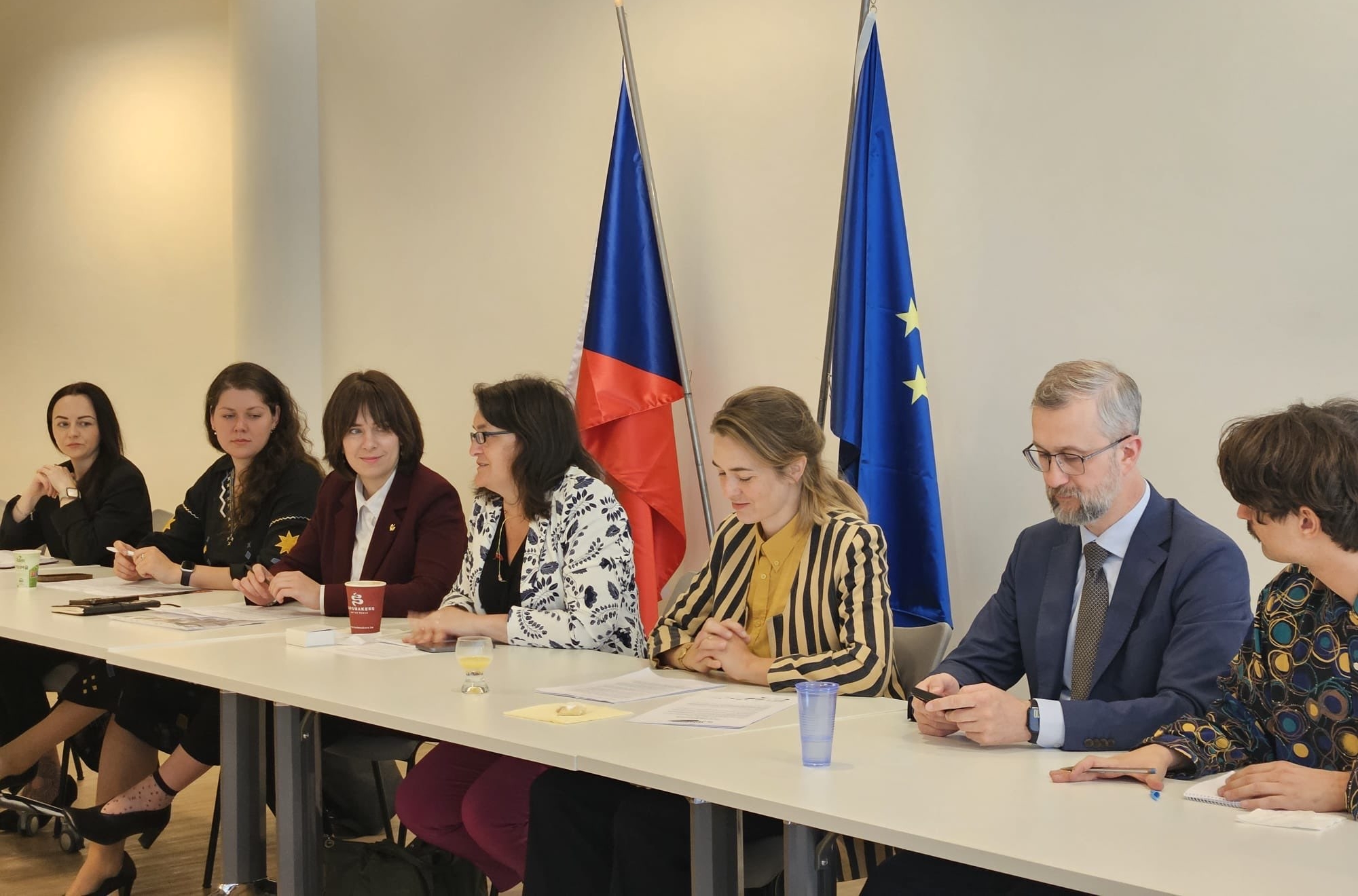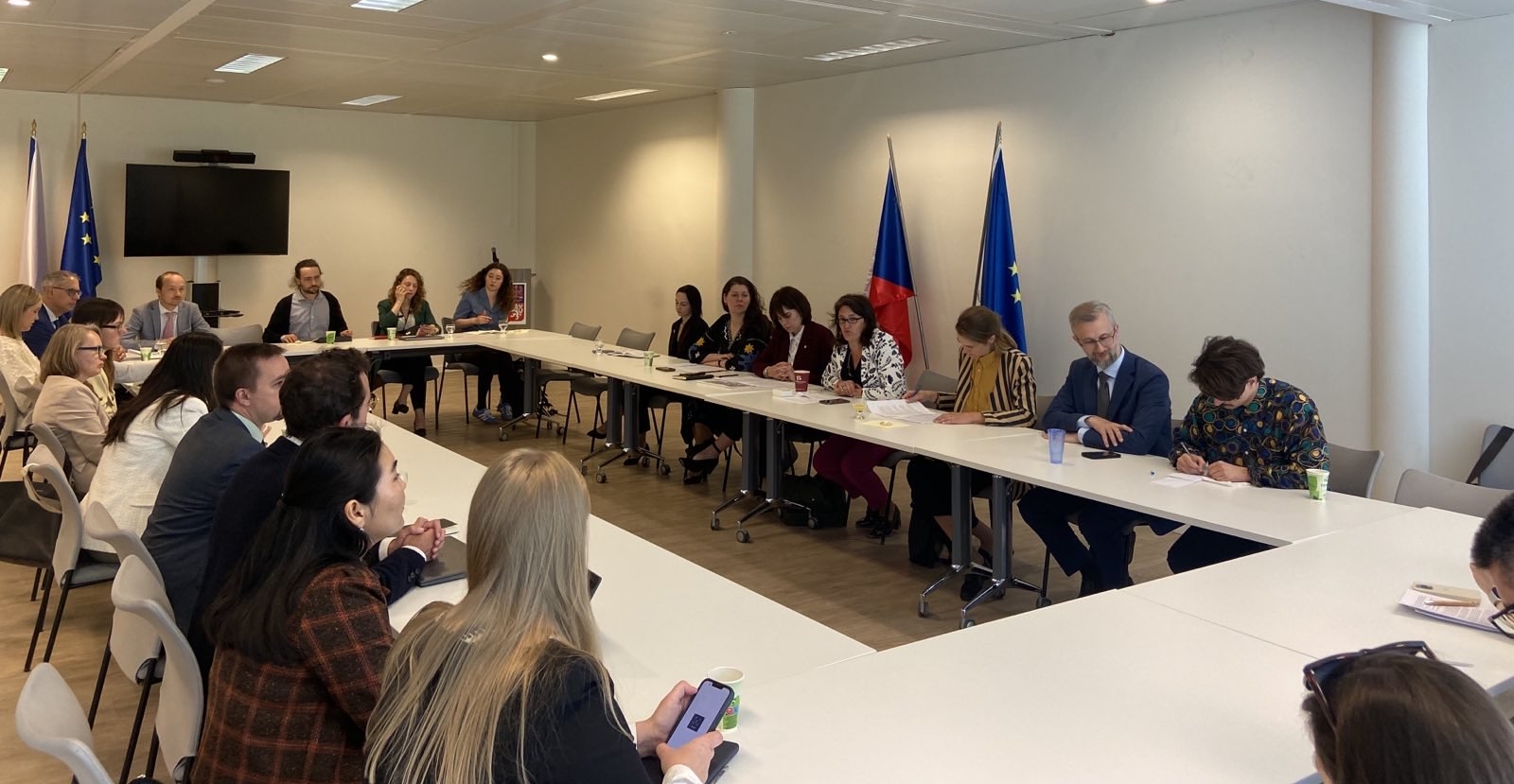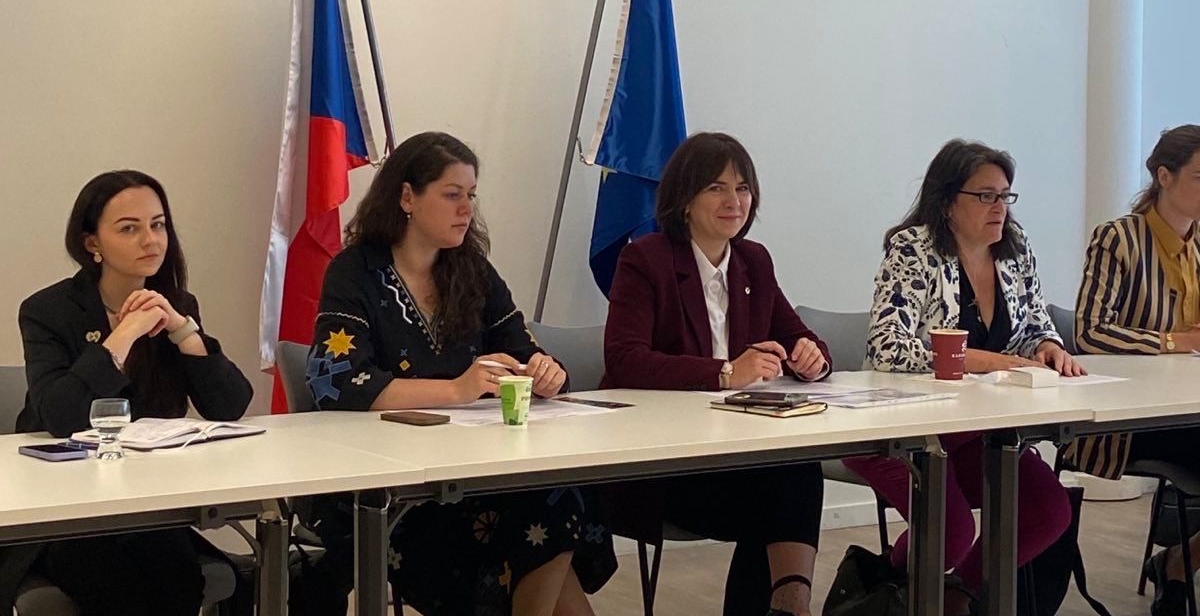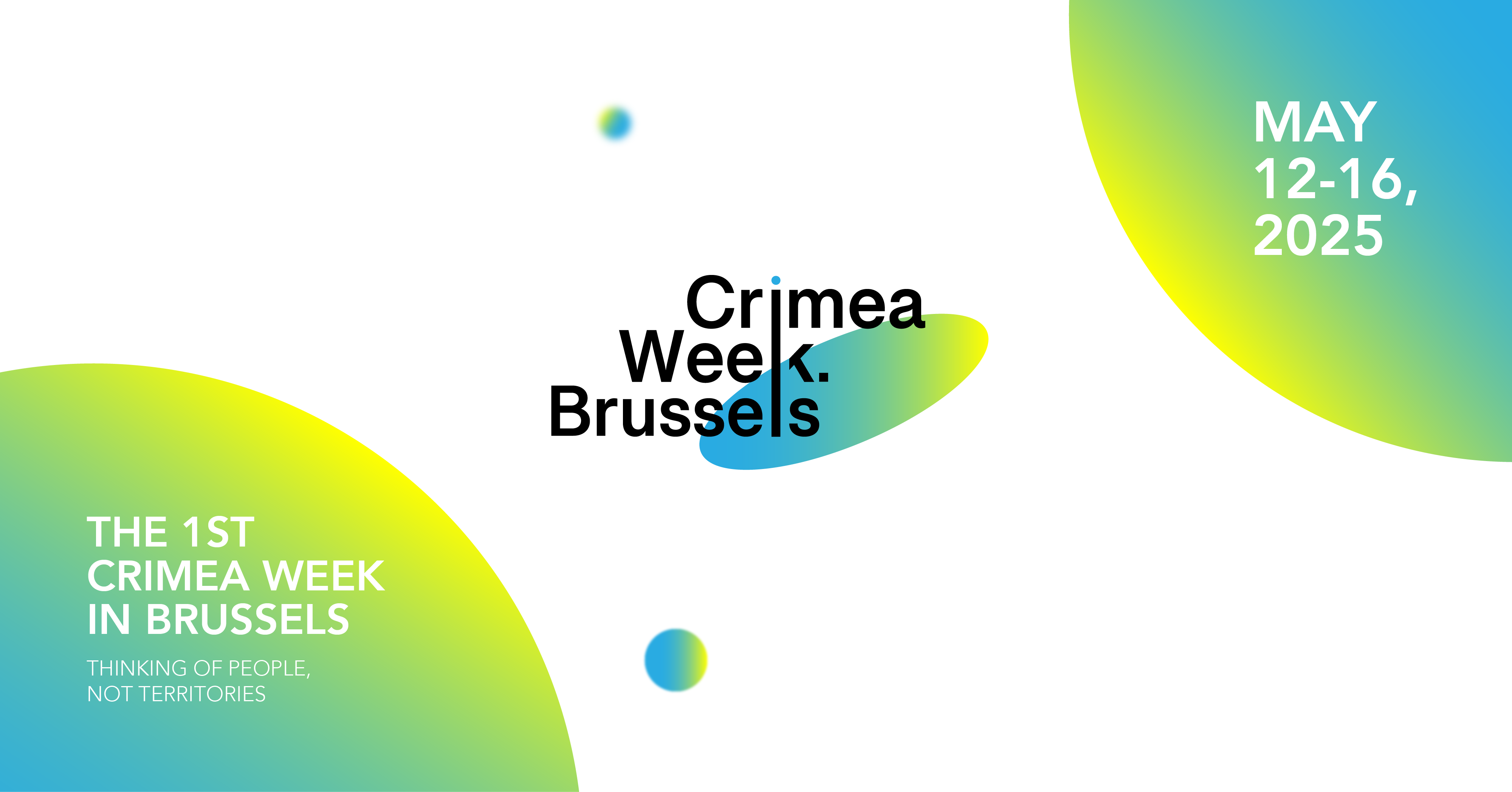Crimea Week opened in Brussels: ZMINA spoke about the human rights situation on the occupied peninsula
On 12 May 2025, the first Crimea Week opened in Brussels – a series of events designed to increase European attention to the situation on the temporarily occupied peninsula. Until 16 May, the initiative will feature discussions, cultural events and meetings aimed at supporting Ukrainian citizens living under occupation who continue to resist. The event is organised by Ukrainian and international NGOs in cooperation with EU institutions, permanent missions of member states and the Mission of Ukraine to the EU. The Human Rights Centre ZMINA is also among the organisers.

The opening of the first Crimea Week in Brussels took place at the Permanent Representation of the Czech Republic to the EU and brought together diplomats, journalists and civil society representatives. The event was opened by Jitka Látal Znamenáčková, Permanent Representative of the Czech Republic in the Political and Security Committee of the European Union, and Olha Kuryshko, Representative of the President of Ukraine in the Autonomous Republic of Crimea.
Olha Kuryshko noted that Crimea continues to resist Russian occupation: “Crimea is first of all about people who are fighting for freedom despite repression: human rights defenders, journalists, activists. The war began in Crimea, and it was there that Russia began to use its imperial practices: torture of people, suppression of independent media, restriction of religious freedoms, human rights violations, militarisation and indoctrination of children. Such actions are a gross violation of international humanitarian law“.
Kuryshko said that during the 11 years of Russia’s occupation, the peninsula has turned into a military base and de facto a prison for its residents, as since 2014, the occupiers have been systematically violating the rights of the peninsula’s residents. After the full-scale invasion, the situation worsened, and repressions became more severe.
The Permanent Representative added that Ukraine is already preparing for the reintegration of Crimea, including the development of reconstruction strategies, cognitive de-occupation and justice programmes. She also stressed the importance of the 2024 ECtHR judgment in the case of Ukraine v. Russia, which recognises Russia as responsible for systematic human rights violations in Crimea.

Viktoriia Nesterenko, Project Manager of the Human Rights Centre ZMINA, spoke about the systematic human rights violations that human rights defenders began to document on the peninsula immediately after its occupation in 2014. She stressed the role of civil society in highlighting human rights violations in Crimea: “We document the persecution of journalists, pro-Ukrainian activists and volunteers. Today we have more than 200 political prisoners, most of whom are Crimean Tatars. 18 of them are journalists“.
She paid particular attention to the persecution of women: “As of today, ZMINA has documented 25 cases of administrative and criminal prosecution of women, of which only eight resulted in illegal verdicts, and we have limited information about the rest. These stories are indicative, they are hyped by Russian media and used as propaganda to intimidate the pro-Ukrainian population in the occupied territories“.
Nesterenko also stressed the importance of such events, which allow for the conveyance of these facts to the international audience, and thanked the Ministry of Foreign Affairs of the Czech Republic, which has been actively supporting the work of human rights defenders aimed at monitoring the situation in Crimea for many years.
“It is very important to speak about Crimea at the international level, because Crimea is about our people. People and their rights are important, not just territories,” summarised Nesterenko.

Deputy Chairman of the Mejlis of the Crimean Tatar people and former political prisoner Nariman Dzhelial highlighted the ongoing difficult human rights situation in the occupied Crimea. He noted that despite the repressions, the Crimean Tatar people continue to fight for their rights and identity.
Mariia Sulialina, Head of the Almenda Centre for Civic Education, spoke about her personal experience and the contrast between life in the free part of Ukraine and the occupied Crimea: “Unlike me, parents in Crimea cannot speak Ukrainian with their children, read books or even explain who Russian soldiers are“.
She also cited examples of the militarisation of children: involvement in labour for the front, listening to speeches of Russian criminals, and participation in paramilitary games. According to her, more than 500,000 children in Crimea should have a chance to live in freedom.
The moderator of the event was Nora Wehofsits, a representative of the Human Rights House Foundation.
Read more about the events of Crimea Week here.

If you have found a spelling error, please, notify us by selecting that text and pressing Ctrl+Enter.















